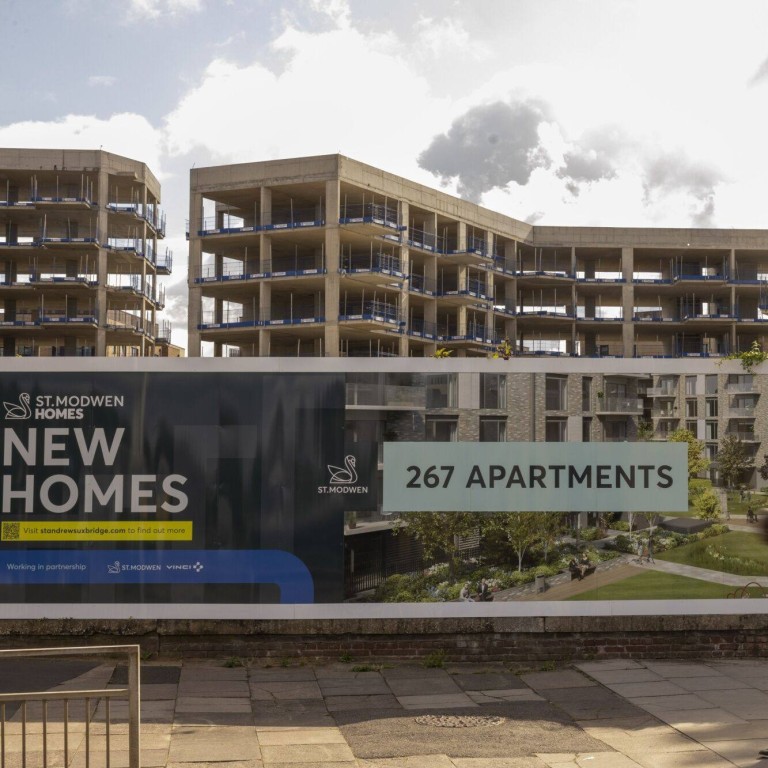
Post-Brexit UK relaxes EU water pollution rules to boost homebuilding
- Britain has been grappling with an undersupply of homes, and a statement said the rule change would enable more than 100,000 homes to be built by 2030
- The move angered green campaigners, who called it ‘a disgraceful move which undermines public trust in the government’
Britain said on Tuesday it would remove some European Union rules it had retained post-Brexit that were meant to curb water pollution, to enable thousands of new homes to be built, a move environmentalists said would further spoil dirty rivers.
The EU’s “nutrient neutrality” laws were put in place to ensure that development does not pollute waterways with additional chemicals that cause plants to grow, from sources such as agricultural fertiliser and untreated sewage.
Britain has for decades been grappling with an undersupply of homes. The government’s Department for Levelling Up, Housing and Communities said in a statement the rule change would enable more than 100,000 homes to be built by 2030 “delivering an estimated £18 billion (US$22.6 billion) boost to the economy”.
It added that nutrients entering rivers “are a real problem”, but the contribution made by new homes is “very small”.

“I want to see more homes built,” Prime Minister Rishi Sunak said on X, formerly Twitter.
“But sometimes hangover EU laws get in the way. It’s not right.”
The changes, proposed in an amendment to a bill currently going through the upper chamber of parliament, come at a time of increasing demand for houses but declining supply.
The Home Builders Federation warned earlier this year that house building in the UK could fall to its lowest level since World War II, blaming an overstrict enforcement of EU environmental regulations.
The government statement quoted David Thomas, boss of Britain’s largest housebuilder Barratt, as welcoming the move, which he said would allow the company to build more homes including 2,500 that were now stalled.
UK to ban single-use plastic cutlery, plates from October
The government’s move angered green campaigners.
“Who would look at our sickly, sewage-infested rivers and conclude that what they need is weaker pollution rules? No one, and that should include our government,” said Doug Parr, policy director at Greenpeace UK.
Craig Bennett, chief executive of The Wildlife Trusts, said it was a “disgraceful move which undermines public trust in the government”.
“The government has made repeated pledges that they won’t weaken environmental standards and committed just eight months ago to halve nutrient pollution by the end of the decade,” he said.
Scrapping the rules trying to stop rivers becoming even more polluted will allow vested interests to make more money at the expense of the environment
“This is another broken promise and makes clear that the prime minister would rather look after the interests of developers than the environment – money talks,” Bennett added.
“Scrapping the rules that are merely trying to stop rivers becoming even more polluted will allow vested interests to make more money at the expense of our rivers and the natural environment,” Bennett said.
Doug Parr, Chief Scientist at environmental group Greenpeace UK, urged the government to force water companies and housebuilders to invest in infrastructure to better handle sewage so river health is not sacrificed for the sake of building more homes.
A research briefing published by the government in May said around 340,000 new homes needed to be supplied in England each year, more than the Conservative Party’s 2019 election manifesto target of 300,000 homes per year by the mid-2020s.


.png?itok=arIb17P0)